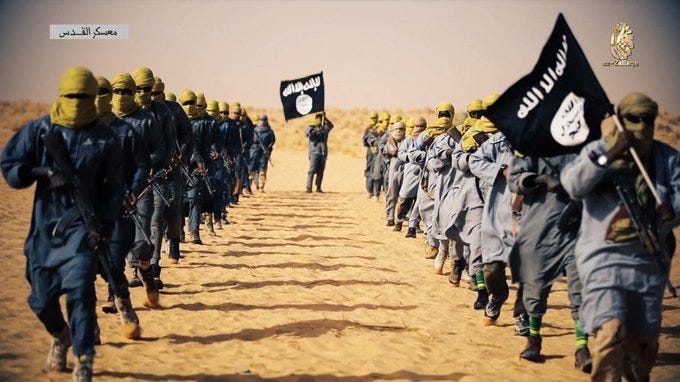
The security situation in West Africa continues to deteriorate. Serious concerns remain over the situations unfolding in Mali and Burkina Faso. It appears that replacing ineffective civilian administrations in both nations with military rule has not achieved stability and or sufficiently countered the activities of militant groups operating across the borders of said countries. Further adding to the regional security problems, a troubling incident occurred in Togo when, in early May, jihadists belonging to the al-Qaeda group Jama’at Nusrat al-Islam wal Muslimin (JNIM) successfully ambushed a government column near a base in the northern part of the country.
The attack reportedly resulted in the deaths of 8 soldiers with another 15 being wounded. The raid will certainly draw the interest of analysts as violence continues to expand in the area. One thing is for certain: the militants in West Africa are moving south. The May 11 raid was the first deadly jihadist attack on Togo. However, it was not the first time jihadists targeted the country, as militants conducted an attack on Togo’s territory late last year. These incidents have taken place within the larger context of jihadist violence spreading into littoral West Africa.

When addressing the most recent incident in northern Togo, EU Foreign Policy Chief Josip Borrell warned of this momentum, saying “the terrorist threat is spreading” to coastal countries. Reports indicate that in response to these emerging threats, Togo along with its neighbors Benin, Ghana, and Côte d'Ivoire have deployed troops to their northern borders to bolster security. In recent months, militants have already launched a series of attacks in northern Benin. The deteriorating security climate may have provided the impetus for AFRICOM to stage Flintlock 22, an exercise designed for the United States to coordinate with its partners from both Europe and Africa.
It is not just the United States that is acutely aware of the security challenges facing West Africa. After relations with Mali soured, both France (Barkhane) and the EU (Takuba) redeployed their units from Mali to Burkina Faso, Niger, and a regional country that was not named at the time.
There are several factors fueling potentially fertile conditions that make Togo an enticing area of operations for militant groups—in this case, jihadists. According to the most recent data collected by Freedom House, and going by their criteria, the country is considered to be only “partly free”. Although Togo has multi-party elections, it has been ruled by the Gnassingbe family since gaining independence from France in 1963. Members of the ruling family’s tribe also have a substantial role in the security forces. Resentment among some of the Togolese population stemming from the nepotism and even corruption of the country’s elites could present an opportunity for the militants to exploit. Suppression of free and grassroots political movements in Togo could add to this sentiment. Out of 50 points, Togo scored a 15 on Freedom House’s index of political rights, and 28 out of 60 on their index of civil liberties. A year-long political crisis that began in 2017, in which calls were made for Gassingbe to step down and which culminated in deadly protests, could once again challenge the ruling elites and lead to an easily exploitable breakdown of law and order in Togolese society.
A travel advice notice released by the UK FCO (Foreign and Commonwealth Office) included an interesting detail. Togo has contributed troops to MINUSMA (United Nations Mission in Mali), and the advisory specifically mentions that the country could be “considered a legitimate target by al-Qaeda in the Maghreb (AQIM) and associated groups”. This is the clearest indication of any nation stating any concern regarding budding jihadist militancy in Togo.
Contrarily, the US Embassy in Lomé does not list any alerts or travel warnings for any US citizens planning on traveling to Togo. It advises US citizens to exercise normal precautions, but some areas do present substantial risk. This means that on the current threat scale of 1 to 4, Togo is considered to be operating under normal conditions and US citizens visiting the country are urged to “Exercise Normal Precautions”. However, the travel advisory from the US embassy did warn of terrorism and kidnapping risks near the border with Burkina Faso. It is concerning to note the glaring differences in how Whitehall and Foggy Bottom have such divergent assessments of the situation on the ground in Togo. This discrepancy could lead to confusion if information needs to be shared in a crisis response when it's needed in real-time.
Are there any clear takeaways right now? Events suggest that it is not a question of if Togo will find itself attacked again by jihadist groups but, rather, when this will happen and at what frequency. The next major question is whether Togo was the “unmentioned country” that the Barkhane or Takuba missions are relocating to. Will Togo receive security assistance from the redeployed missions? Better yet, could these missions have some communication with those efforts already underway in the Gulf of Guinea? This will be something for strategists to ponder as the situation grows direr and until answers become clear.


